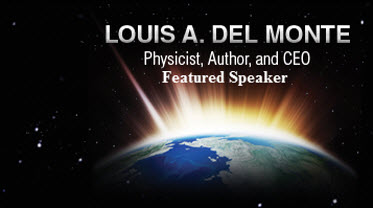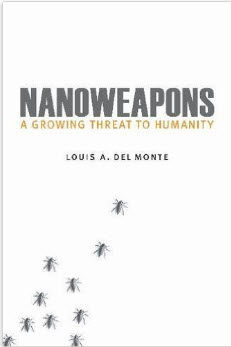There are numerous unsolved mysteries in science. In this post, I will delineate the top five that I consider the most profound.
- What caused the Big Bang? Cosmologist are in strong consensus that the Big Bang resulted in the evolution of the Universe, but there is no scientific consensus as to what caused the Big Bang. There are several theories, including one that I put forward in my book, Unraveling the Universe’s Mysteries. However, none of the current theories, including the one that I forward in my book, have garnered consensus in the scientific community. The origin of the Big Bang is arguably the greatest scientific mystery of all time, and it remains an area of considerable research.
- How did life start on Earth? There are two fundamental theories regarding the origin of life on Earth. The first theory, panspermia, holds that life exists throughout the Universe and is distributed by meteoroids, asteroids and planetoids. This theory is compelling, but it still leaves us with another profound question, “How did life originate in the Universe?” There are no widely accepted theories to address that question. The second theory, regarding how life started on Earth, is termed biopoesis. It holds that life forms from inorganic matter through natural processes. This theory is also compelling, but no experimental process has resulted in life forming from inorganic matter. By simple logic, one or even both of these theories is correct. Obviously, in the early Universe, life had to form from inorganic matter. It is also possible that life also started on Earth via the same process. It is also possible that once life formed in the Universe, it was spread by meteoroids, asteroids and planetoids.
- What is the nature of time? Some scientists, myself included, argue time is real. This stance suggests that time travel would also be possible. In my book, How to Time Travel, I devote considerable attention to the various philosophies of time and to experiments that suggest time is real. I also delineate experiments that prove time travel to the future is real, as well as experiments that prove reverse causality is real (i.e., literally, the effect precedes the cause). I also delineate experiments that prove that something in the future can alter the past. Some philosophers and scientists argue that time is a mental construct. It is not real. That humans invented time to measure change. If that is true, time travel would not be possible, except in your mind. However, scientific experiments, such as time dilation and reverse causality suggest otherwise. What do you think?
- What is the fundamental theory of physics? Modern physics rests on two pillars, The first pillar is Einstein’s theories of relativity. The second pillar is quantum mechanics. Although Einstein’s theories explain phenomena on the macro-scale (i.e., the typical scale we observe in our every day life), it fails to explain phenomena on the quantum level (i.e., the level of atoms and subatomic particles). To explain phenomena on the quantum level we must turn to quantum mechanics. This would be acceptable, except Einstein’s theories of relativity are incompatible with quantum mechanics. They do not come together to adequately explain gravity. Physicists have long sought the “theory of everything.” Some physicists, like world renown cosmologist Stephen Hawking, suggest that M-theory (i.e., the most comprehensive string theory) fits the bill. However, there is no consensus or proof that M-theory is even valid. Until the next Einstein comes along and solves the problem, we don’t have a fundamental theory (i.e., a single unifying theory) of physics.
- Does life exist on other planets or is the Earth unique? Almost every scientist agrees that given the vastness of the Universe and the numerous Earth-like planets that have been discovered, there must be life somewhere else in the Universe. Indeed, many believe, myself included, that advanced aliens, similar or more advanced than ourselves, must also exist. However, there has been no definitive publication that proves life exists elsewhere in the Universe. I will refrain from getting into UFOs, government conspiracies and similar material. I don’t refute such theories, but as a scientist I must base my conclusions on definitive evidence. To date, we have no definitive evidence (i.e., widely accepted by the scientific community) regarding life on other planets. However, mathematically, I think life on other planets is a certainty. What do you think?











